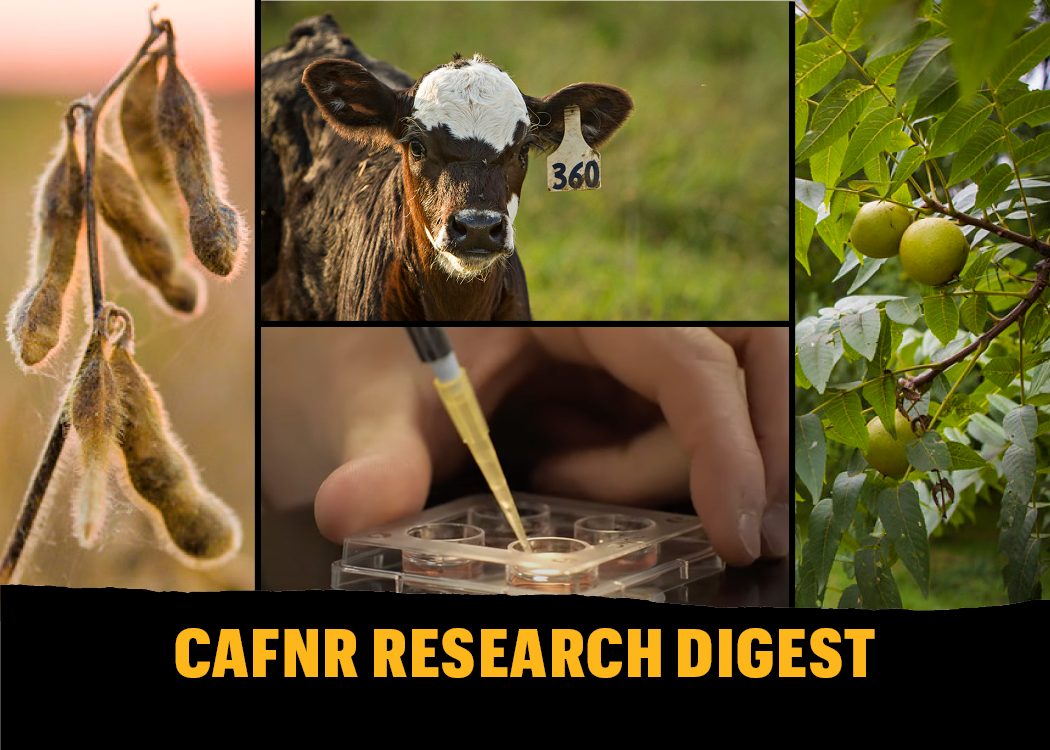|
CAFNR faculty members have received the following recent grants (listed by Principal Investigator):
Andrew Scaboo, National USDA Uniform Soybean Tests / Yield, Disease Resistance and Quality Traits Evaluation of Public Breeding Lines (Year 3 of 3), Agricultural Research Service, 10/1/22-8/31/23, $6,374
Grover Shannon, SOYGEN3: Building capacity to increase soybean genetic gain for yield and composition through combining genomics-assisted breeding with characterization of future environments, University of Minnesota, 10/1/22-9/30/23, $59,946
Rebecca North, Statewide Lakes Assessment Project, Missouri Department of Natural Resources, 4/1/23-3/31/24, $258,714
Alba Argerich, Lakes of Missouri Volunteer Program, Missouri Department of Natural Resources, 4/1/23-3/31/24, $237,560
Peter Sutovsky, High Throughput Phenotyping of Polygenic Heritable Sperm Defects, USDA-NIFA, 4/1/23-3/31/27, $1,300,000
Robert Schnabel, PARTNERSHIP: Development of Genomic Reference Materials for Cattle, USDA-NIFA, 7/1/23-6/30/26, $800,000
Bradley Wilson, ECSG Beltwide Seed Quality 2.0 project, Cotton, Inc., 1/1/23-12/31/23, $6,000
|
